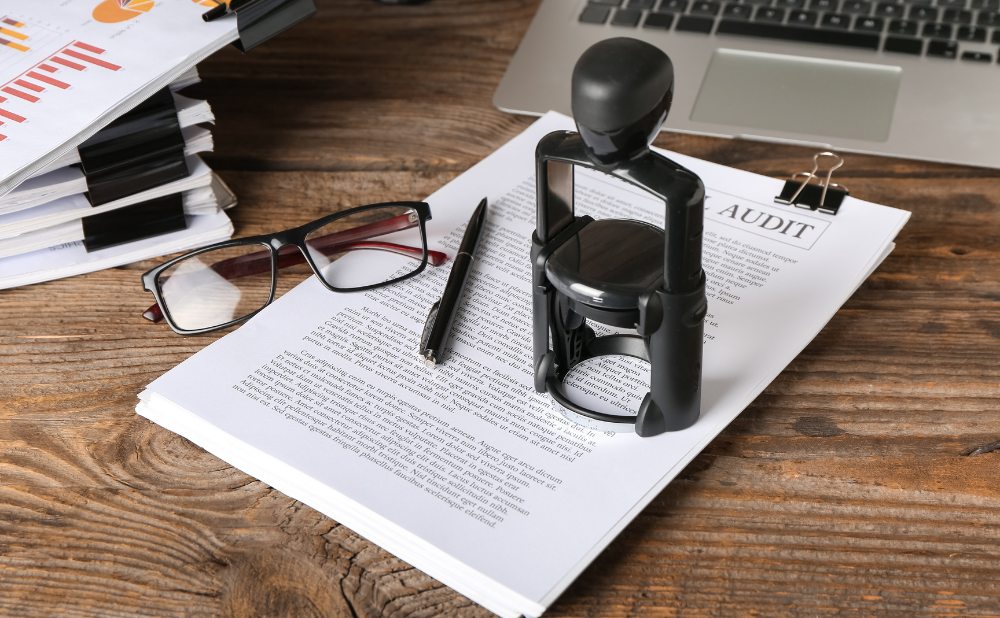You’ve probably seen that official-looking stamp on important papers. Perhaps you’ve been advised that a notary is required for a document. But what exactly does a notary do, and who can be one? A common question that pops up is about attorneys; are they all automatically able to notarize your important documents?
It’s a good question, especially when you’re dealing with legal papers. Understanding the role of a notary, and how attorneys fit into that picture, can save you time and confusion. You’ll learn about this and also discover how firms like Bumbaugh | George | Prather | DeDiana in Irwin, PA can help.
What Exactly is a Notary Public?
So, what is a notary public? Think of them as trusted, impartial witnesses appointed by state governments, often referred to as notaries public. Their main job is to help prevent fraud by witnessing the signing of documents and verifying the identity of the signers.
A notary doesn’t judge the fairness or legality of a document; they focus on the identity and willingness of the signers. They simply confirm that the person signing the document is who they say they are and is signing willingly and knowingly. The National Notary Association often provides resources for understanding these roles better.
This official act of notarization adds a layer of trust to many types of transactions. It shows that proper steps were taken when the document was signed, ensuring its integrity. These public officials play a crucial part in maintaining the trustworthiness of formal agreements.
What Does a Notary Do? Their Main Jobs
A notary public has several key responsibilities, all of which are vital for document certification. These duties are pretty standard across most states, though specific rules can vary a bit. You can often find specific state rules on your Secretary of State’s website or through a notary bulletin.
Here’s a rundown of common tasks a professional notary performs:
- Witnessing Signatures: This is perhaps their most well-known function. The notary watches as you sign the document, providing an impartial witness to the act.
- Administering Oaths and Affirmations: For certain documents, like affidavits, you might need to swear or affirm that the contents are true. A notary can administer this oath, adding legal weight.
- Taking Acknowledgments: This is when a signer declares to a notary that they willingly signed a document for the purposes stated within it. The notary then certifies this declaration.
- Certifying Copies: In some states, notaries can make certified copies of certain original documents, like a driver’s license. This isn’t allowed everywhere, so it’s good to check your local rules on document certification.
- Executing Jurats: With a jurat, the signer swears or affirms to the notary that the contents of the document are true. The signer must sign the document in the notary’s presence.
These actions all serve to make documents more reliable. They give people confidence in the authenticity of signed papers and form a core part of notary education.
Why Might You Need a Notary?
You might be surprised how often you could need a notary. Many different types of documents need this official touch. The goal is usually to make sure the signatures are genuine and that people aren’t being forced to sign, which helps prevent fraud.
Some common documents that often need notarization include:
- Real estate deeds and mortgage documents, often handled by a notary signing agent.
- Powers of attorney (for financial or healthcare decisions).
- Affidavits and sworn statements.
- Last wills and testaments (this varies by state, some require it).
- Trust agreements.
- Vehicle title transfers.
- Business contracts and loan agreements, essential business resources.
- Medical release forms.
- Minor travel consent forms.
- Retirement account beneficiary forms.
If someone asks you to get a document notarized, it’s usually because it’s important for legal or financial reasons. The other party wants proof that you are the one who signed it, and the notary signing provides that verification.
The Big Question: Are All Attorneys Also Notaries?
This is a very common question, and one of the frequently asked questions people have. Many people assume that if someone is an attorney, they are automatically a notary public. But, this isn’t the case; being an attorney and being a notary are two separate things.
An attorney is someone licensed to practice law after passing the bar exam. They can give legal advice, represent clients in court, and draft legal documents. Becoming a notary involves a separate application process with the state, often through the Secretary of State’s office, and requires specific notary education.
This process usually includes things like an application, a fee, and sometimes an exam or training. While some attorneys choose to also become notaries, it’s not an automatic part of getting a law license. Many attorneys do become notaries because it’s convenient for their clients and their practice, allowing for a smoother handling of documents requiring notarization without sending clients to a separate signing agent.
Can an Attorney Notarize Your Documents?
If an attorney is a commissioned notary public, then yes, they can generally notarize documents. They have the same authority as any other notary. In fact, many law firms have attorneys or staff members who hold notary commissions to streamline client services and document processing. But there’s an important consideration: impartiality, a cornerstone of the notary profession.
A core principle of being a notary is that you must be an impartial witness. This means you cannot have a personal or financial interest in the transaction beyond your notary fee. What if the attorney drafted the document they are notarizing, or what if they directly benefit from it?
State laws and ethical rules for attorneys address this potential conflict. Generally, an attorney should not notarize a document if they are a party to the transaction or have a direct beneficial interest. For example, an attorney likely should not notarize their own client’s signature on a will if the attorney is named as a beneficiary in that will, as this could lead to challenges or even prior sanctions if rules are violated.
So, while an attorney who is a notary can notarize, they must always consider if doing so would create a conflict of interest or violate their notary duties. A professional notary always prioritizes impartiality.
Benefits of Using an Attorney Who is a Notary (or Has One on Staff)
There can be some real advantages to using an attorney who also holds a notary commission or has a notary on staff. It can make things smoother for you, especially when complex legal matters are involved. Why might this be a good option?
First, there’s convenience. If you’re already meeting with an attorney for legal services, and a document needs notarization, they can often do it right there. This saves you an extra trip to find a separate notary or notary signing agent.
Second, attorneys understand legal documents deeply. While a non-attorney notary focuses only on the identity of the signer and the signing process, an attorney-notary or attorney with a notary at their office will likely have a more thorough understanding of the document itself. This can be comforting, though remember, in their capacity as a notary, they are still primarily an impartial witness to the signature, not a legal advisor on the document at that moment unless specifically engaged for legal advice separately.
Third, and this is a significant benefit, an attorney can give you legal advice about the document if you engage them in that capacity. A non-attorney notary is strictly prohibited from giving legal advice. If you have questions about the legal meaning or consequences of what you’re signing, an attorney can answer those questions, making them valuable business resources for complex transactions. The good news is, in many cases, an attorney will have an in-house notary, and you can meet with your attorney and notary at once and get any questions answered without compromising the notary process.
Finding a Notary: Where Can You Look?
Need a notary? Don’t worry, they are usually not too hard to find, and there are many options available. Many different places offer notary services, including specialized signing agent services for loan documents. Here are some common spots to check:
- Banks and Credit Unions: Many financial institutions have notaries on staff for their customers, sometimes for free.
- Shipping Stores: Places like The UPS Store or FedEx Office often have notaries available for a fee.
- Public Libraries: Some public libraries offer notary services, though availability and fees vary.
- Real Estate Offices: Given the number of documents they handle, many real estate offices have a notary or work closely with a notary signing agent.
- Tax Preparation Services: Some tax preparers also offer notary services.
- Law Offices: As we’ve discussed, many law firms, including Bumbaugh | George | Prather | DeDiana, have attorneys or staff who are notaries.
- Online Search Tools: Many states have online databases where you can search for commissioned notaries public officials. There are also private websites that list notary services.
- Mobile Notaries: These notaries travel to your location for a fee. This can be very handy if you can’t easily get out or require a notary signing at a specific place.
It’s always a good idea to call ahead to confirm the notary is available and to ask about any fees. You’ll also want to know what kind of identification they accept and if they have the necessary notary supplies like the correct stamp or seal for your document type.
Your Attorney (or Law Firm) as a Notary: What to Know About The Process
The actual process of notarization is quite structured. Whether it’s an attorney-notary or any other notary, the fundamental steps are similar, guided by state law. This is important because it helps maintain the integrity of the notarial act.
Here’s a general look at what happens during a notary signing:
- Screening the Signer: The notary will verify that the signer appears to be aware of what they are doing and is willing to sign.
- Verifying Identity: As mentioned, this is key. The notary examines your ID to make sure you are who you claim to be.
- Reviewing the Document: The notary will scan the document for completeness and to identify the type of notarization needed. They are not reading it for legal sufficiency but looking for blank spaces or signs of issues.
- Performing the Notarial Act: This is where they either witness your signature, take your acknowledgment, or administer an oath or affirmation.
- Completing the Notarial Certificate: This is the wording, usually on the document itself or attached, where the notary describes what they did. It includes details like the venue (state and county), the date, your name, and the notary’s signature and seal. Specific wording for certificates is often mandated by state law.
- Applying the Notary Seal: The notary will affix their official seal or stamp, a critical piece of their notary supplies. This seal contains information like the notary’s name, commission number, and commission expiration date.
- Making a Journal Entry: Most states require notaries to keep a detailed journal of all notarial acts performed. This log serves as an official record and is a best practice emphasized in notary education.
Each step is designed to protect against fraud and ensure the document is properly executed according to notary laws. This systematic approach is vital for the services a professional notary provides.
Bumbaugh | George | Prather | DeDiana: Legal Guidance with Notary Services On-Site
Handling legal documents can be stressful—but getting them notarized shouldn’t add to the burden. At Bumbaugh | George | Prather | DeDiana, we offer the convenience of integrated notary services alongside our full suite of legal support, right here in Greensburg.
Our team includes commissioned notaries who can assist with your document needs as part of your broader legal matter. Whether you’re working through an estate plan, family law issue, or injury claim, having access to both legal and notary services under one roof may help simplify the process.
It’s one less appointment to schedule and one more way we help you move forward with confidence.
Conclusion
When it comes to important paperwork, understanding the role of a notary can help you avoid delays, confusion, or legal missteps. While attorneys aren’t automatically notaries, many do hold a notary commission to better support their clients, especially when legal documents need to be signed, witnessed, and properly authenticated.
A notary’s job is to verify identity, confirm willingness to sign, and help prevent fraud. This impartial role is governed by state laws and built on ongoing education. If you’re seeking both legal guidance and convenient access to notarization, working with a firm that offers both may save time and reduce stress.
If you’re in the Greensburg area, Bumbaugh | George | Prather | DeDiana is here to help. Our team combines legal experience with in-office notary services to support your next step with confidence and care.
Frequently Asked Questions (FAQs) About Notary Services at a Law Firm
What identification do I need to bring to a notary?
You typically need a current, government-issued photo ID. This could be a driver’s license, state ID card, military ID, or passport. The ID must contain your signature and a photograph for the notary to perform the uniquely identifying process.
Can a notary refuse to notarize a document?
Yes, a notary can refuse service if they cannot properly identify the signer, if the signer appears coerced or unaware of what they are signing, or if the document is incomplete or has blank spaces. A notary also cannot notarize if they have a direct financial or beneficial interest in the transaction.
What documents can be notarized at a law firm?
Law firms can typically notarize many types of documents, including:
- Affidavits and sworn statements
- Power of attorney forms
- Wills and trust documents (check state rules)
- Real estate deeds and agreements
- Business contracts and loan forms
What should I bring to my notary appointment at a law firm?
Bring:
- The unsigned document
- A valid, government-issued photo ID (e.g., driver’s license or passport)
- Any witnesses required by the document, if not provided by the firm
Can a law firm help me understand the document before notarizing it?
Yes, if you engage the attorney for legal advice. A notary cannot explain the document unless they are also your legal counsel. If you have questions, let the firm know you may need legal review in addition to notarization.







